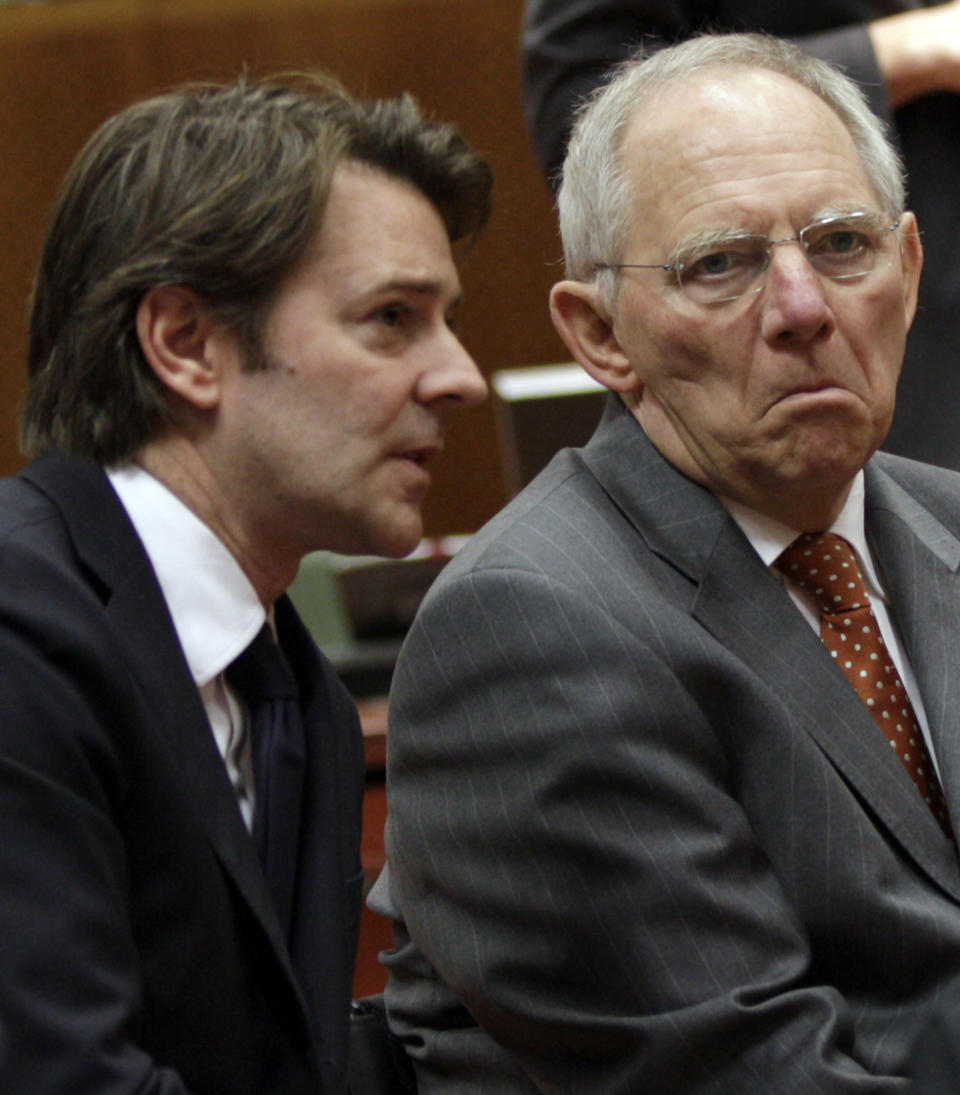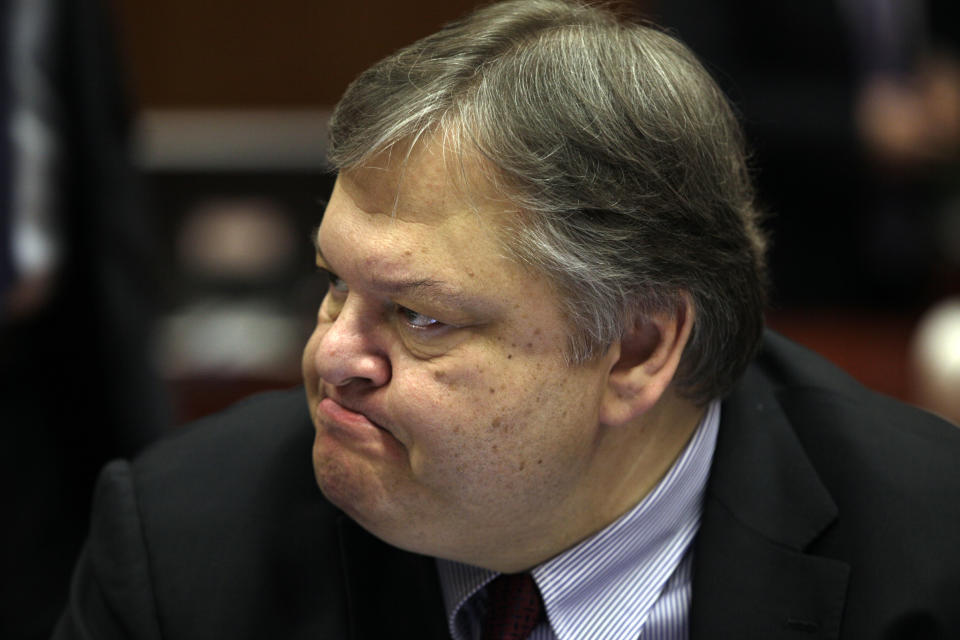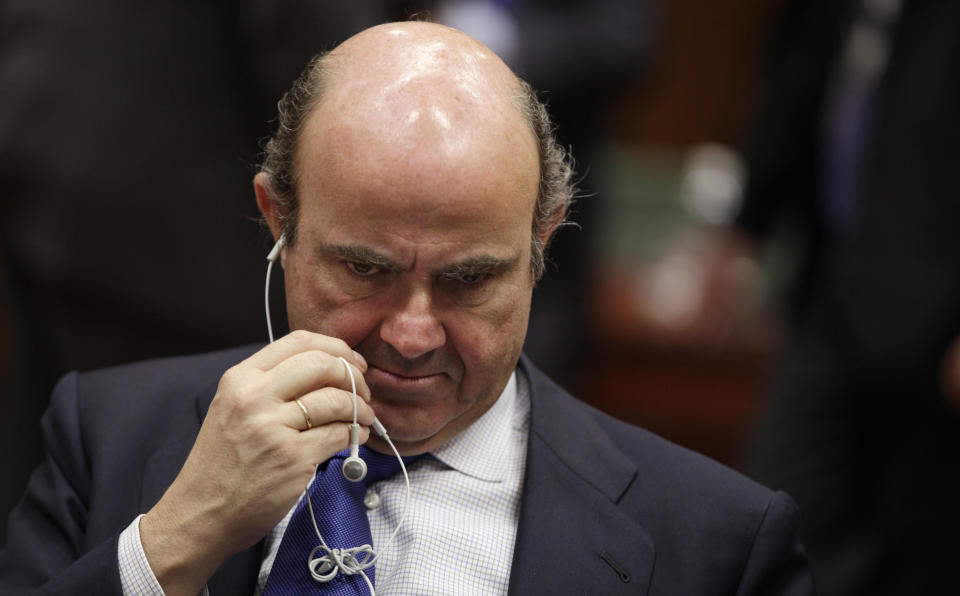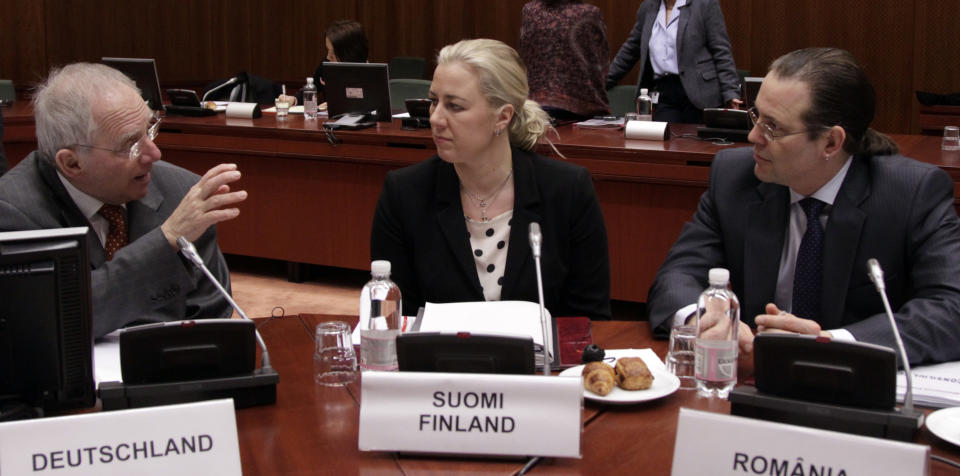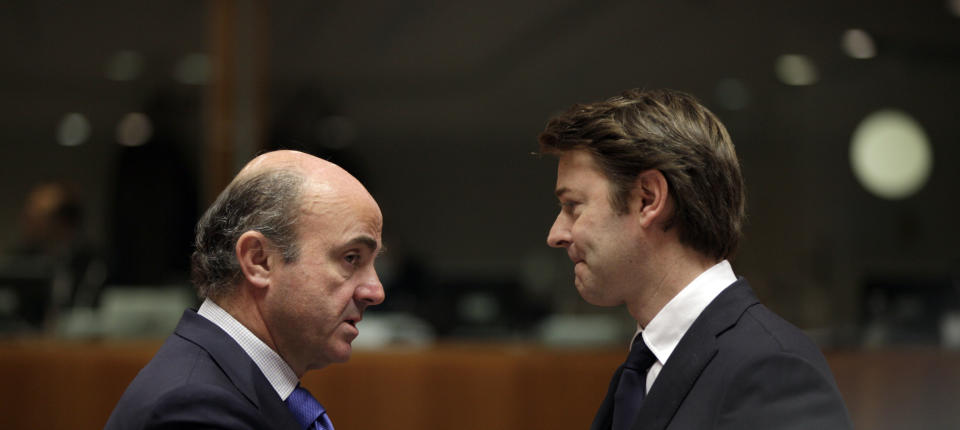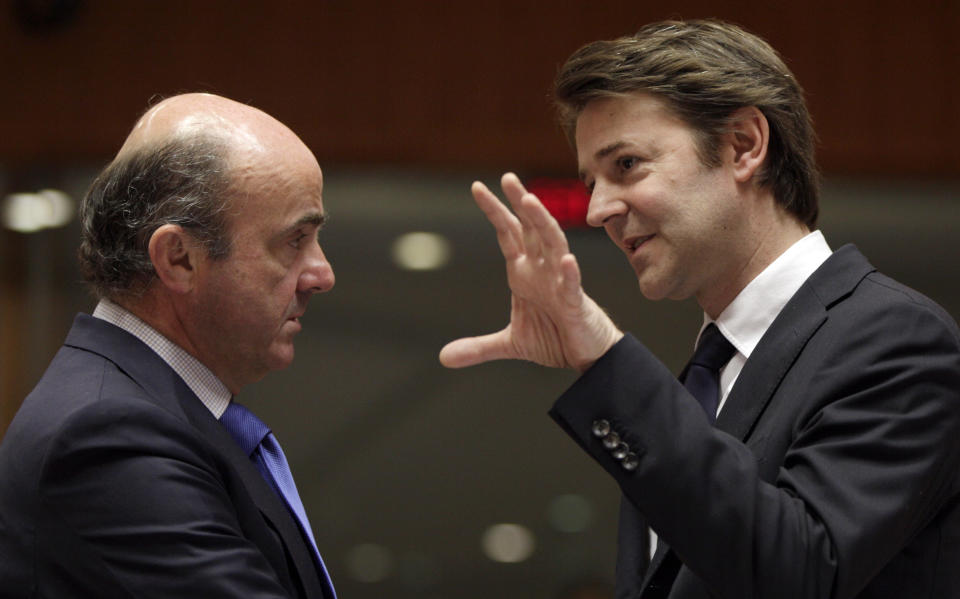Europe struggles to stick by new budget rules
BRUSSELS (AP) — Europe's strict rules to stop countries from overspending are already being stretched as governments try to balance austerity measures against badly-needed economic growth.
Governments are trying to slash deficits that ballooned in the aftermath of the financial turmoil of 2008 and this year signed off on a new set of rules that would punish countries that overspend.
But with many economies in the region shrinking, austerity measures may actually be counterproductive to deficit-cutting efforts. And as political and popular resistance grows, governments' dedication to their new spending rules was under threat.
On Monday night, the finance ministers of the 17-country eurozone gave unemployment-ridden Spain some leeway on its 2012 deficit, but maintained a 2013 target that most economists say is simply unattainable.
On Tuesday, the ministers of the 27-country European Union had to overcome strong opposition from several states before they were able to impose sanctions on Hungary, which has broken the bloc's deficit rules ever since it joined in 2004. The sanctions will be reassessed in June.
Meanwhile, in the Netherlands, the party that had been supporting the government's European policies demanded an exception for the country's 2013 budget. If the government insists on slashing next year's deficit despite the current recession, the opposition Labor party said it would not ratify the new European treaty on tougher spending rules.
Analysts warned that these cases do not bode well for enforcing the strict budget rules in the future.
"The risk now is to hear from other countries asking for the same treatment," Frederik Ducrozet, analyst at Credit Agricole CIB, said in a note.
There are of course significant differences between the economies of Spain, Hungary and the Netherlands.
The Netherlands and Spain use the euro, while Hungary still has its own currency, the forint. The Dutch are usually one of Europe's fiscal hard-liners, frequently lecturing countries like Greece and Portugal on their spending. Spain was a model student when it comes to Europe's fiscal rules until the 2008 crisis ran its economy into turmoil. Hungary, on the other hand, has been violating the EU's deficit rules ever since it joined the bloc in 2004.
But the fact that they are all facing pressure over their deficits signals how widespread Europe's fiscal and economic problems are.
Part of the issue is that as many European economies face another recession, a focus only on austerity measures is making deficit-cutting harder, not easier.
"The European Union must enter a phase giving the same attention to growth, especially in youth employment (as it does to debt reduction)," Italian Prime Minister Mario Monti told reporters after he held private talks with Chancellor Merkel in Rome.
As growth improves, the reasoning goes, government revenues will increase, helping to lower the deficit.
The new fiscal pact was signed by 25 of 27 EU countries — only the U.K. and the Czech Republic did not participate — and limits structural budget deficits to 0.5 percent of economic output, a level that can only be passed in exceptional economic circumstances.
European leaders and the European Central Bank have pinned their hopes on the pact to convince investors that the debt crisis will not repeat itself in the future. For that to work, they insist, implementation of the rules is key. After all, the EU had deficit limits even before the debt crisis, but many countries — including Germany and France — ignored them.
Tensions in financial markets have eased enormously in recent weeks, thanks largely to emergency loans from the ECB to the financial sector.
But the central bank's chief, Mario Draghi, has warned repeatedly that governments need to use the moment of calm to strengthen their finances and improve growth.
Of the 17 euro states, eight others have to cut their deficits to below 3 percent of gross domestic product by 2013, according to Carsten Brzeski, an economist at ING in Brussels.
"Except for Germany, most other countries are still far off from reaching this target," Brzeski said.
___
Toby Sterling in Amsterdam and Don Melvin in Brussels contributed to this story.

